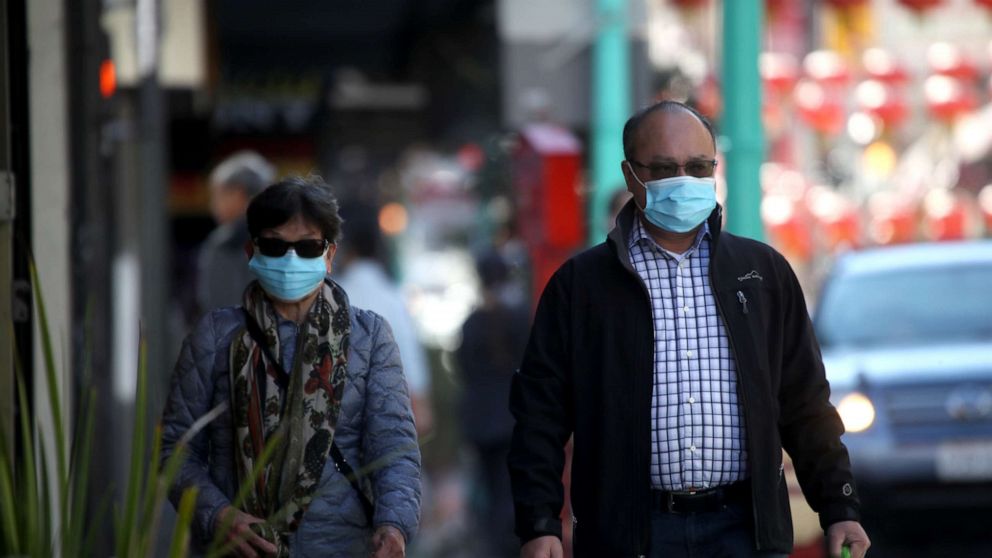Coronavirus has 'pandemic potential,' WHO warns as US ramps up testing
Public health officials are sounding the alarm as an outbreak of a new coronavirus that began in China is now infecting thousands of people in dozens of other countries, including the United States.
Here's the latest on the developing situation.
5:30 p.m. New York City testing possible case
The New York City Health Department announced Thursday afternoon that it was investigating a possible coronavirus case in the city. The patient reported having symptoms and recently traveled to Italy, the agency said.
The CDC was administering the tests, according to the Health Department. The city tested six patients for coronavirus so far this season and all came back negative.
4 p.m. ET Stocks plummet
The Dow Jones Industrial Average fell 1,190 points, more than 4%, on Thursday, marking the worst week for U.S. markets since the financial crash of 2008.
3:30 p.m. ET California hospital watching staff for symptoms
A spokesman for the Northbay Healthcare Group, which runs the NorthBay VacaValley Hospital where the most recent coronavirus patient first sought help, shared details about their response.
Hospital administrators identified employees that came in contacted with the woman, who could be the country's first person-to-person transmission of COVID-19, according to spokesman Steve Huddleston.
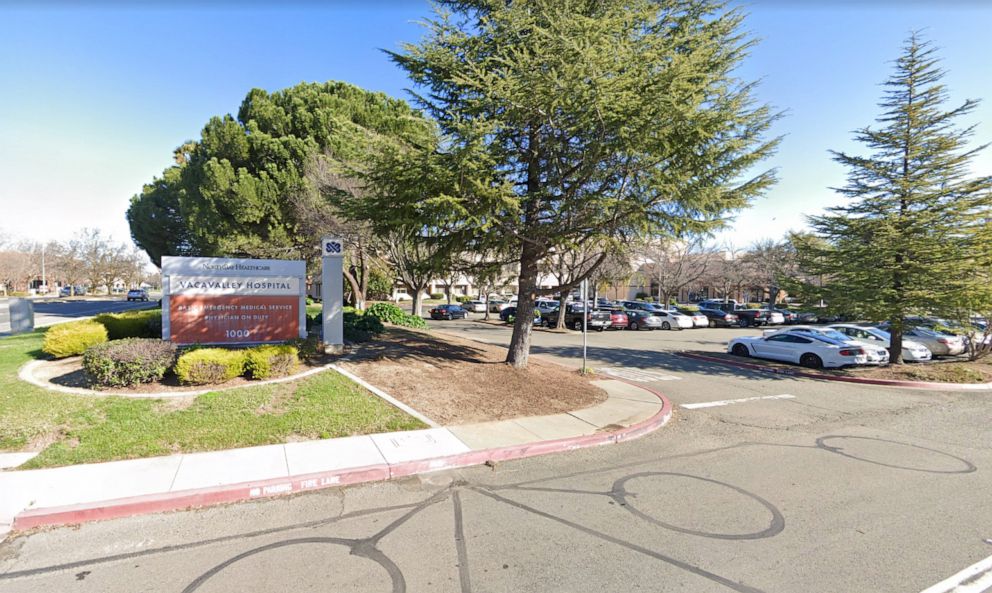
"Those that met the moderate- or high-risk categories were asked to stay home and monitor themselves for any sign of COVID-19," he said.
The patient was in the hospital for three days and didn't immediately show any symptoms, but as her conditioned worsened, she was transferred to UC Davis Medical Center in an ambulance, according to the spokesman.
2:30 p.m. ET California reassures public
Gov. Gavin Newsom and California health officials updated the public on the state's response to the coronavirus. As of Thursday morning, the state had 33 positive cases, including a Solano County woman who could be the country's first person-to-person transmission of COVID-19.
Newsom said he was in contact with the CDC, and that the federal government said it would speed up protocols for testing and provide the state with more kits.
"I'm very pleased the CDC is moving expeditiously," he said.
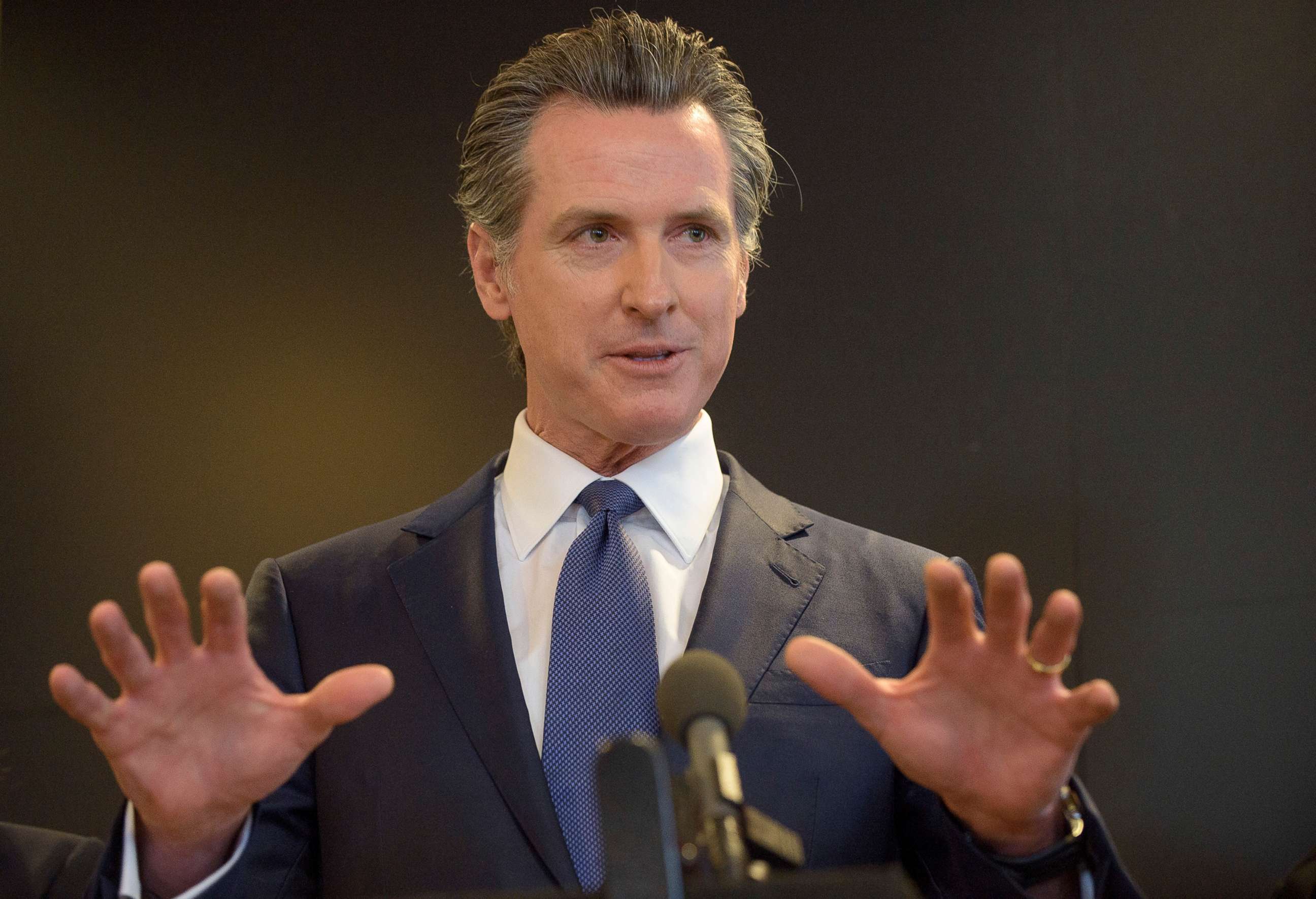
Newsom wouldn't provide more details about the Solano patient other than that she's being treated at a Sacramento facility and health officials are currently undertaking a "deep tracking and tracing" initiative to find and interview everyone she was in contact with.
"We currently have people in the field working in the community," Dr. Sonia Angell, director of the California Department of Public Health and State Public Health Officer, said.
The governor warned that the state likely would see more patients as the health crisis continues but that local officials were prepared.
Of the 33 cases, 24 were flown to California from the Diamond Princess cruise ship or on repatriation flights from Wuhan.
1:15 p.m. ET Facebook cancels annual developer conference
Facebook announced it would cancel its annual F8 developer conference in San Jose, California, May 5-6, due to coronavirus concerns.
"This was a tough call to make -- F8 is an incredibly important event for Facebook, and it's one of our favorite ways to celebrate all of you from around the world -- but we need to prioritize the health and safety of our developer partners," the company said in a statement.
Facebook said it would have alternative plans for the developers, including "locally hosted events, videos and livestreamed content."
1 p.m. ET Dog in Hong Kong tests positive for virus
Officials from Hong Kong's Agriculture, Fisheries and Conservation Department said a pet dog has tested positive for coronavirus.
The agency said it received a referral Feb. 26 from the Hong Kong Department of Health after the dog’s owner tested positive. While the dog didn’t have any relevant symptoms, it did test a weak positive and is being kept in quarantine for further testing.
"The AFCD does not have evidence that pet animals can be infected with COVID-19 virus or can be a source of infection to people," the agency said in a statement.
11:56 a.m. ET U.S. transportation secretary: 'We must be vigilant'
U.S. Transportation Secretary Elaine Chao said approximately 15,000 Americans returning home have been vetted via health screenings so far, amid the country's efforts to mitigate an outbreak of the novel coronavirus.
As a member of the "coronavirus task force," Chao said the U.S. Department of Transportation is helping bring home thousands of Americans from virus-hit China and Japan while also ensuring health protocols are maintained.
"The president says these containment measures have been effective," Chao said Thursday during an appearance before the House Committee on Appropriations. "But we must be vigilant and plan for the possibility of community based transmission in the United States."
11:30 a.m. ET U.S. health secretary: 'Immediate risk to the American public remains low'
U.S. Health and Human Services Secretary Alexander Azar continued on Thursday to emphasize that "the immediate risk to the American public remains low."
During an appearance before the House Committee on Ways and Means on Capitol Hill, Azar said the United States can still expect to see new confirmed cases of the novel coronavirus as the response efforts now focus on containing the spread of the disease on American soil, but he said that doesn't mean there will necessarily be a large number of people who will need to be hospitalized.
Most people infected by the "community spread" of the virus will have mild to moderate symptoms and will likely be able to stay at home, according to Azar.
"It will look and feel to the American people more like a severe flu season in terms of the interventions and approaches you will see," Azar said.
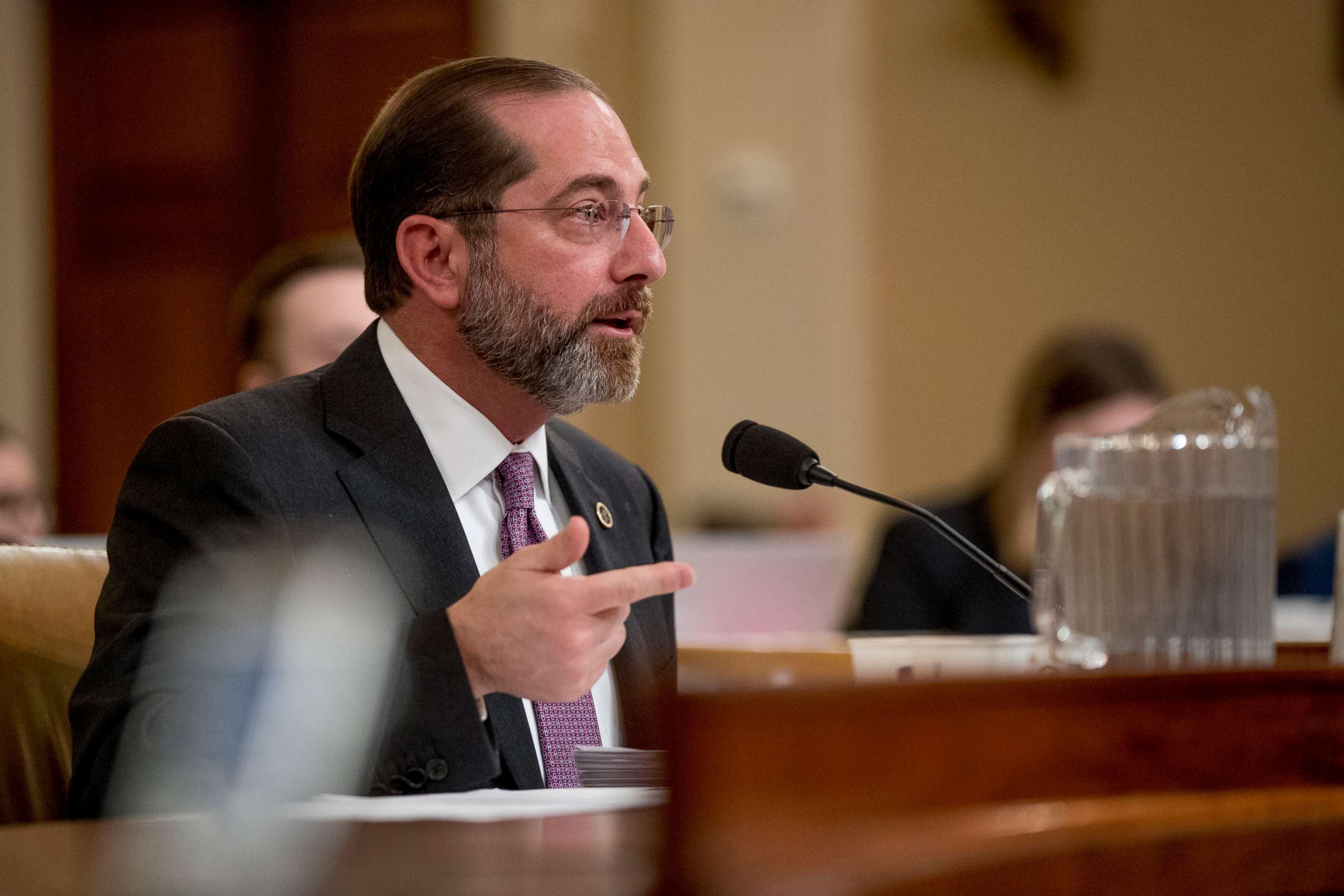
The U.S. Centers for Disease Control and Prevention has processed more than 3,600 tests for the new coronavirus, according to Azar, who said there is currently no backlog in having them processed quickly. The CDC has also received approval from the U.S. Food and Drug Administration to adjust the testing protocol to deal with inconclusive results. The next step is to try to develop a bedside diagnostic that hospitals can use in real time, Azar said.
Human trials testing a potential vaccine for COVID-19 are expected to start in six weeks. Azar said the Trump administration "will work to ensure there are appropriate protections to ensure the affordability of any vaccine produced out of joint venture work that taxpayers are funding as part of these cooperative venture work that we're part of."
10:05 a.m. WHO director-general: 'This virus has pandemic potential'
The director-general of the World Health Organization, Dr. Tedros Adhanom Ghebreyesus, said the rising number of novel coronavirus cases confirmed outside of China in countries like South Korea, Italy and Iran demonstrate what this newly identified virus is capable of, and everyone must be prepared.
"Even developed countries could be surprised," Tedros warned. "Our message continues to be that this virus has pandemic potential."
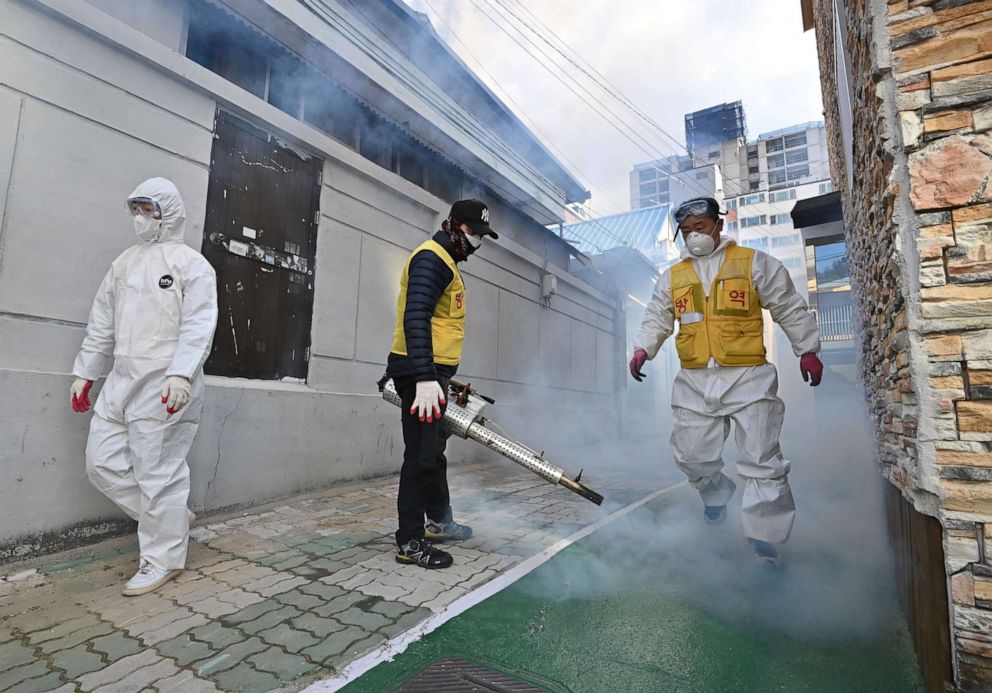
"No country should assume it wouldn't get cases. That could be a fatal mistake, quite literally," he added. "This virus does not respect borders. It does not distinguish between races or ethnicities. It has no regard for a country's GDP or level of development. The point is not only to prevent cases arriving on your shores -- the point is what you do when you have cases."
In the past 24 hours, the WHO has recorded seven nations that announced their first cases of the novel coronavirus: Brazil, Georgia, Greece, North Macedonia, Norway, Pakistan and Romania.
"My advice to these countries is to move swiftly and contain it," Tedros said. "With the right measures, it can be contained. That's one of the key messages from China."
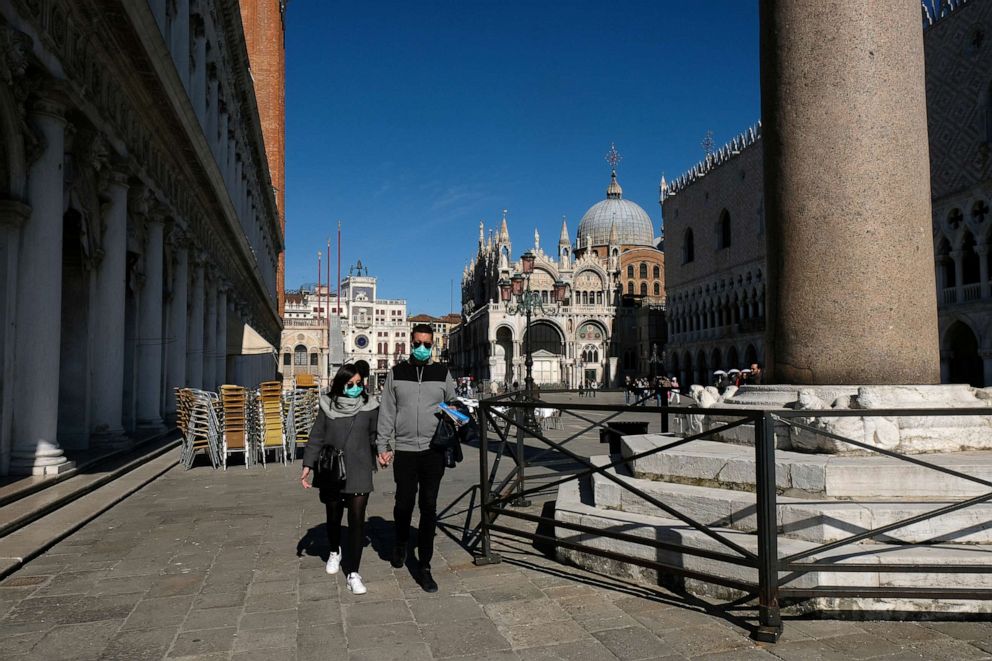
Out of 320,000 cases tested for COVID-19 in China's Guangdong province, just 0.14% were positive, which indicates "containment is possible," according to Tedros.
Tedros noted he's encouraged by the progress made in several countries that, as of Thursday, have not reported any new cases in over two weeks, including Belgium, Cambodia, India, Nepal, the Philippines, Russia, Sri Lanka and Vietnam.
Earlier
The latest patient being treated for the novel coronavirus in the United States is being investigated by health officials as possibly the first case of "community spread" on American soil.
The U.S. Centers for Disease Control and Prevention confirmed the diagnosis Wednesday night, bringing the total number of infected Americans to 60. The majority of the cases are U.S. citizens who were aboard the Diamond Princess cruise ship that was placed under quarantine in Japanese waters as hundreds of passengers became infected with the newly identified virus, known officially as COVID-19, which originated in China.
However, the newest patient, who is a resident of California's Solano County, had no known exposure to the virus through travel or close contact with a known infected individual, according to the California Department of Public Health.
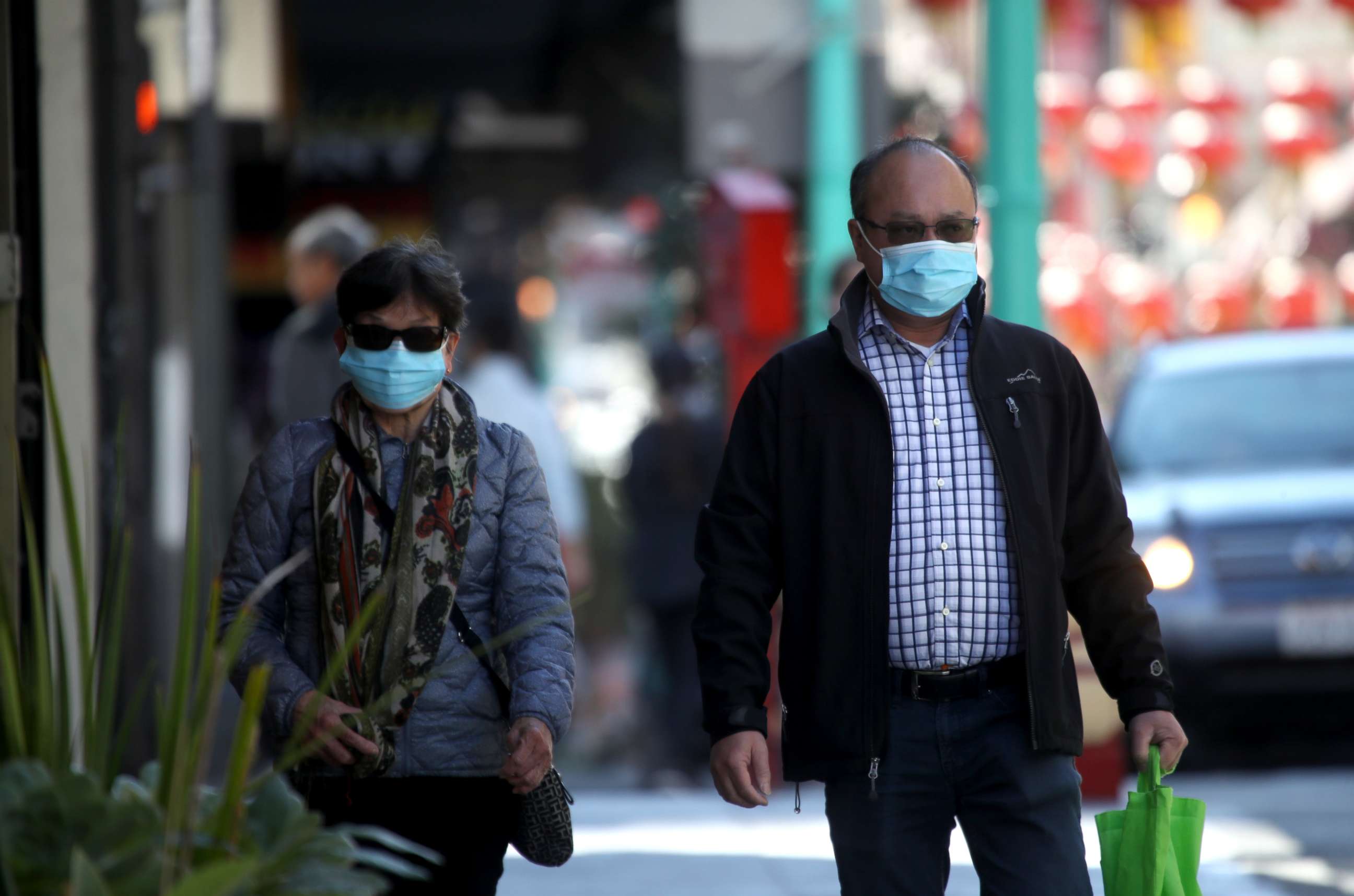
It's the first COVID-19 case of unknown origin in the United States, indicating there could be "community spread," which means the virus is circulating among the local community and infecting people, including some who are not sure how or where they became infected, according to the CDC.
"We have been anticipating the potential for such a case in the U.S.," Dr. Sonia Angell, director of the California Department of Public Health, said in a statement Wednesday night, "and given our close familial, social and business relationships with China, it is not unexpected that the first case in the U.S. would be in California."
The individual was transferred to UC Davis Medical Center in Sacramento from another hospital on Wednesday, and doctors requested COVID-19 testing by the CDC.
"When the patient arrived, the patient had already been intubated, was on a ventilator, and given droplet protection orders because of an undiagnosed and suspected viral condition," UC Davis Medical Center said in a statement Wednesday night. "Since the patient did not fit the existing CDC criteria for COVID-19, a test was not immediately administered. UC Davis Health does not control the testing process."
The CDC ordered COVID-19 testing on Sunday, according to UC Davis Medical Center.
The CDC said it would continue to investigate the source of the infection. It's "possible" that the individual "may have been exposed to a returned traveler who was infected," an agency official said in a statement Wednesday.
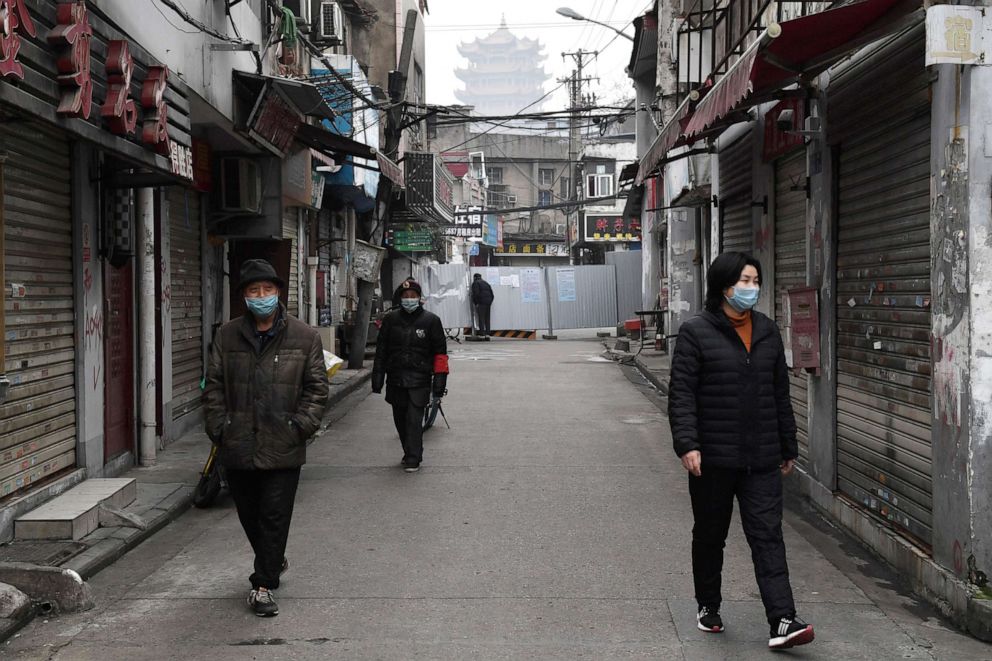
The new coronavirus emerged in the Chinese city of Wuhan back in December and has since spread overseas to at least 37 other countries, with South Korea, Italy and Iran seeing recent surges in case numbers. The World Health Organization, which has declared the outbreak a global health emergency and said it "absolutely" has the potential to become a pandemic, has recorded more than 81,000 confirmed infections globally. Over 96% of those cases were in China.
At least 2,762 people have died from confirmed cases of the virus, all but 44 in China, according to the latest data from the WHO.
COVID-19 causes symptoms similar to pneumonia, ranging from the mild, such as a slight cough, to the more severe, including fever and difficulty breathing, according to the CDC. There is no vaccine yet for the virus.
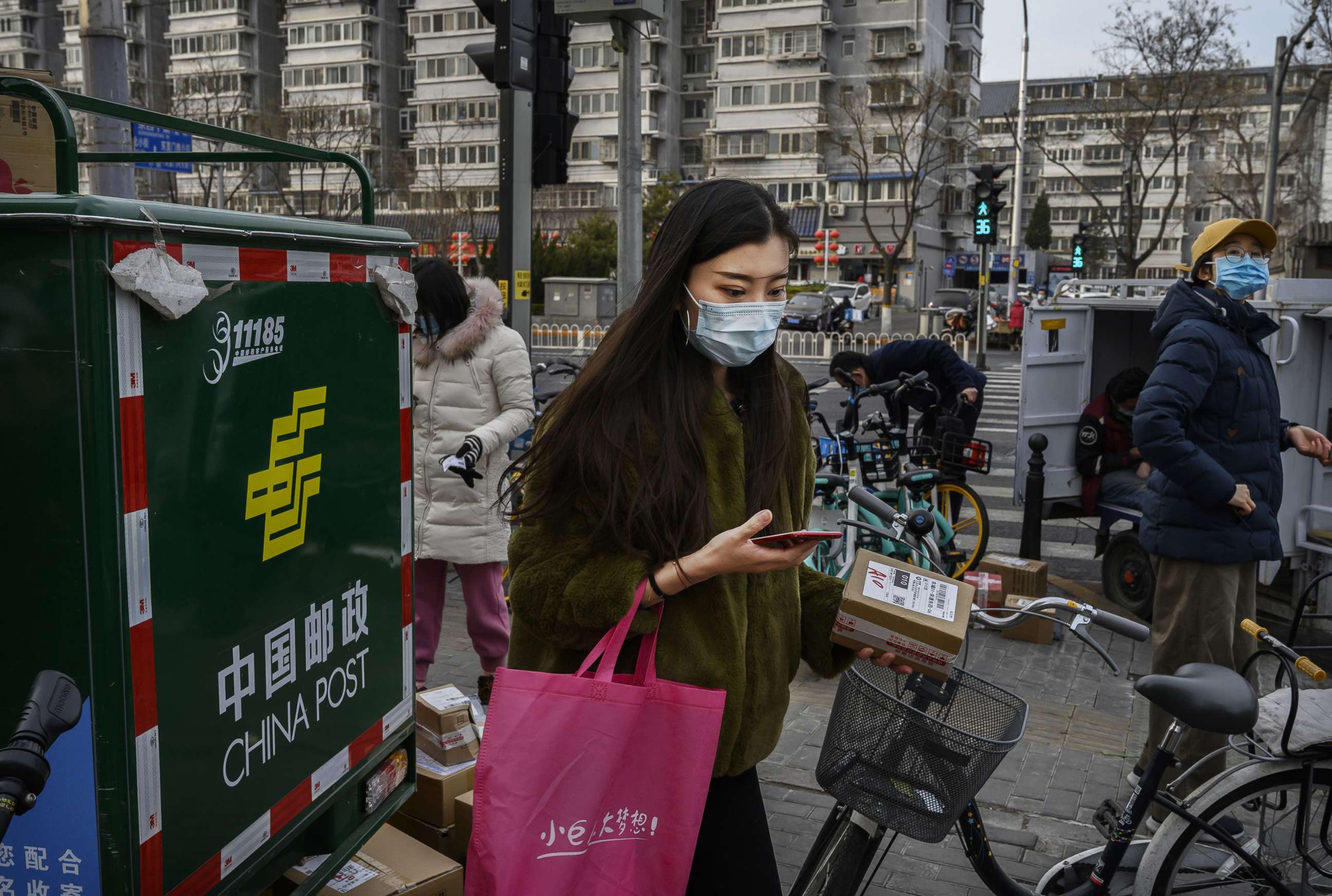
Increasing concerns over virus exposure have prompted some cities around the world to suspend public gatherings and shutter schools, businesses and restaurants. Many airlines have also suspended flights to China as well as South Korea, which has the second-highest national total of coronavirus cases behind China.
Japanese Prime Minister Abe on Thursday ordered the closure of all schools nationwide to help control the spread of the disease. The closures will go into effect Monday and will last until spring holidays begin in late March.
Meanwhile, Saudi Arabia on Thursday halted travel to Islam's holiest sites amid fears over the new virus. The move, which comes just months before the start of the annual Hajj pilgrimmage, stops foreigners from visiting the holy city of Mecca and the Kaaba, as well as Prophet Muhammad's mosque in Medina.
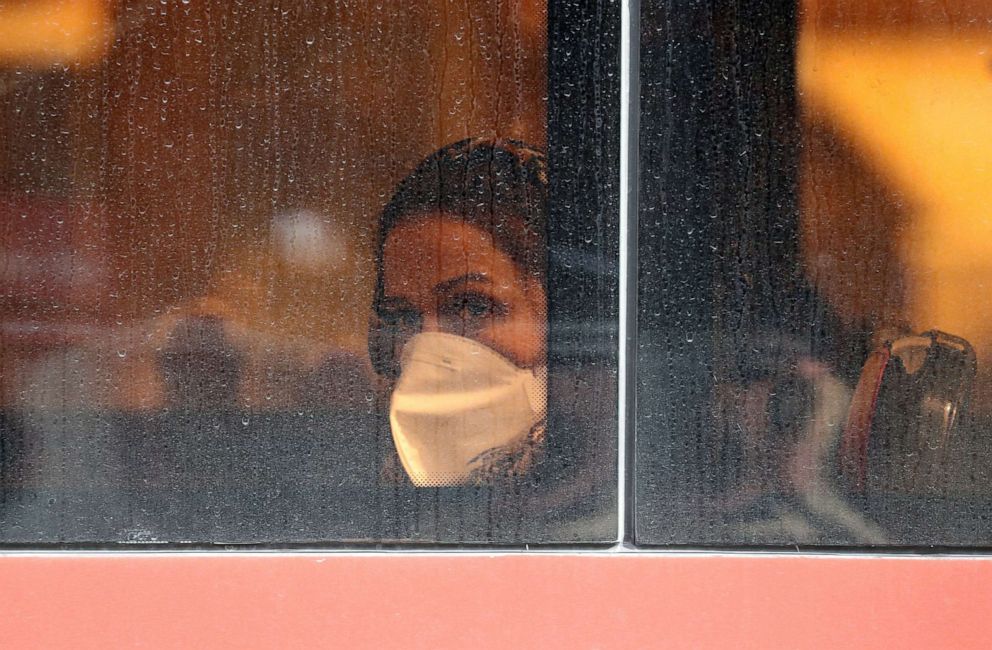
China has imposed severe restrictions on large areas, including a lockdown on the city of Wuhan, and the United States has put in place strict travel restrictions on people who have recently visited China.
During a press conference Wednesday in the White House, U.S. President Donald Trump said it was "not the right time" to impose additional restrictions on entry to the country -- although he noted, "we may do that." Trump also told ABC News' Karen Travers that the United States did have plans for quarantining cities "on a larger scale, if we need it."
The Trump administration has asked lawmakers for emergency funding to combat the new coronavirus -- $1.25 billion in new funding and another $1.25 billion shifted from existing funding previously allocated for other reasons, including some designated to deal with the Ebola virus. House Speaker Nancy Pelosi, along with other Democrats in Congress, has criticized the request as being too little, too late.
Senate Minority Leader Chuck Schumer announced Wednesday morning he's preparing a detailed Democratic request for emergency coronavirus funding totaling $8.5 billion, which was expected to be finalized and sent to appropriators this week.
ABC News' Stephanie Ebbs, Erin Schumaker, Alex Stone, Ray Taylor and Christine Theodorou contributed to this report.
